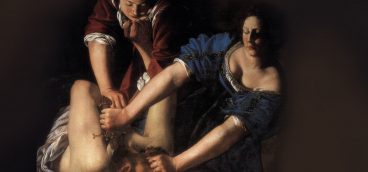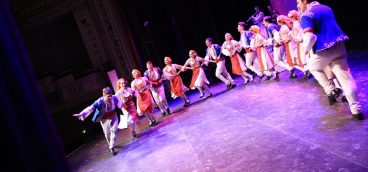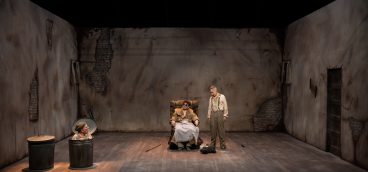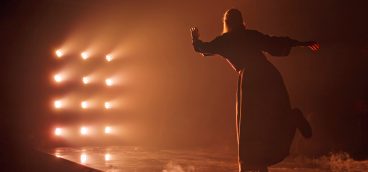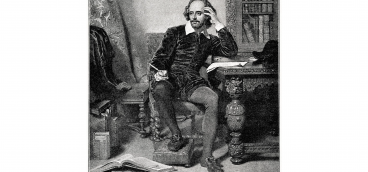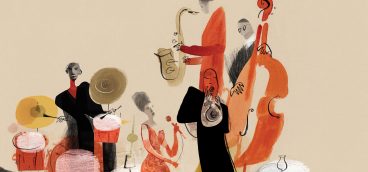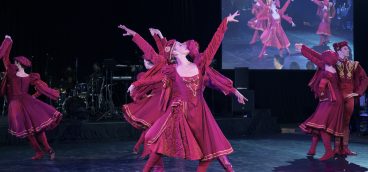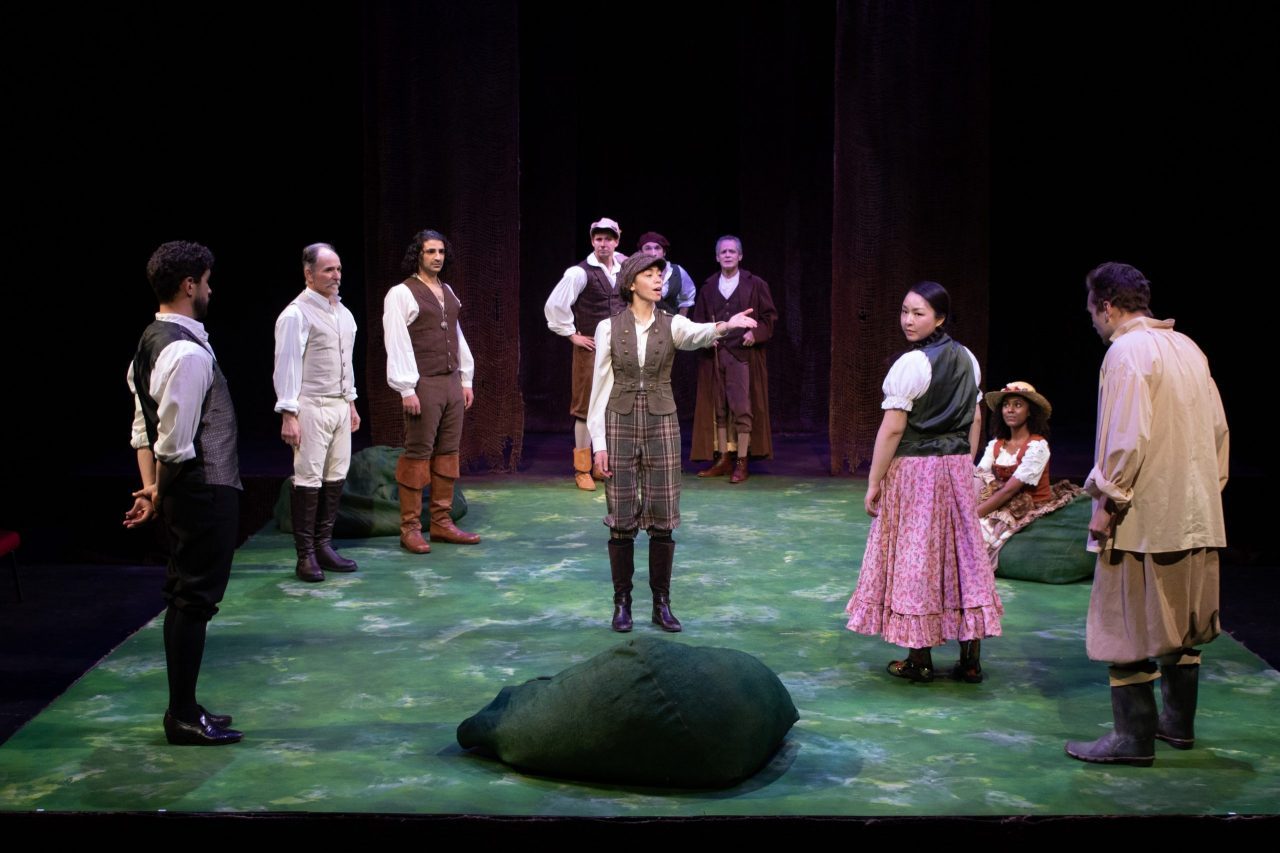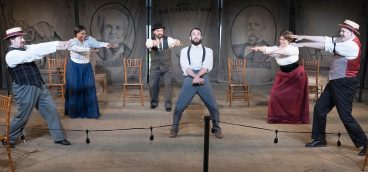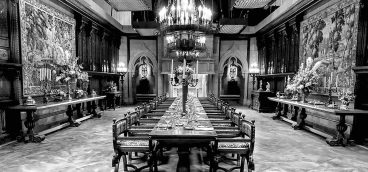Quantum’s “The Cherry Orchard” is Brilliantly Inscrutable
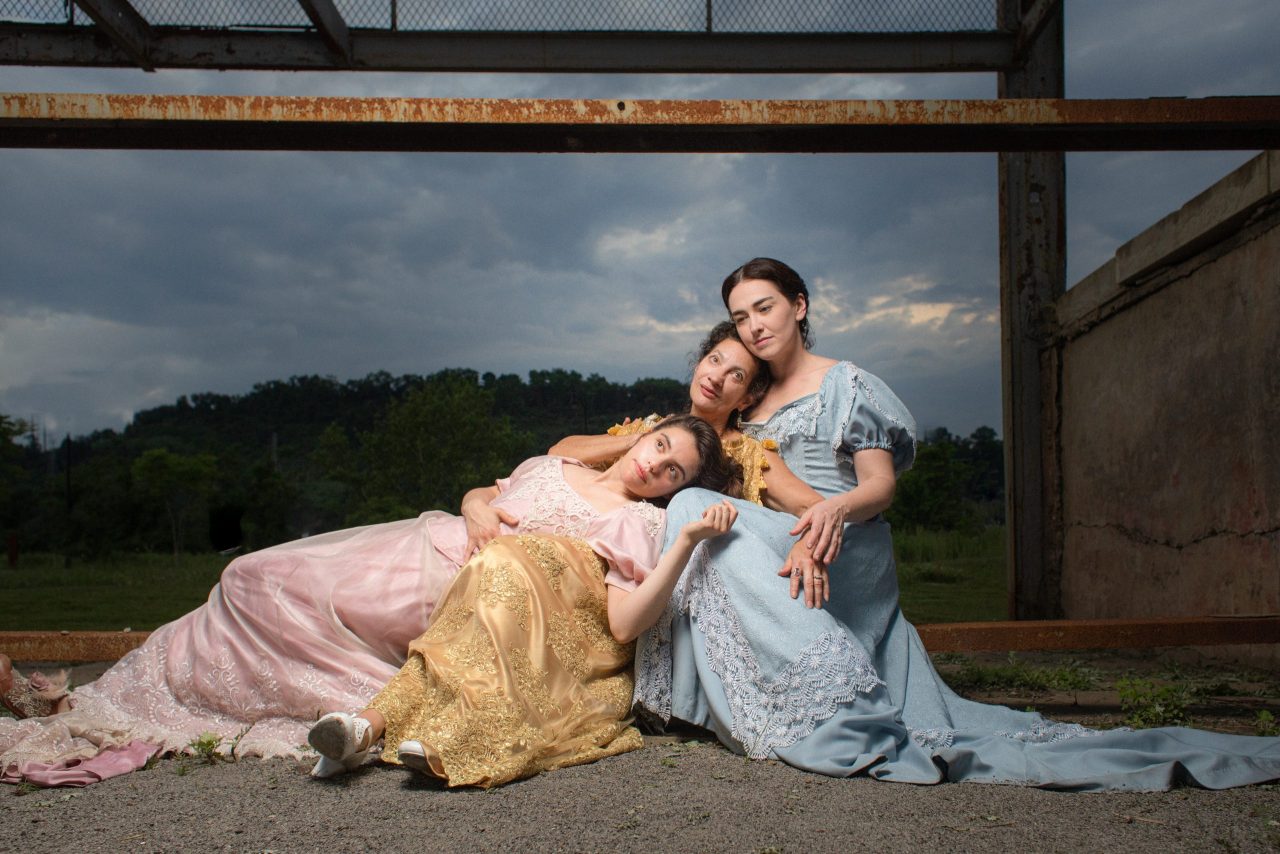
Often in theater, the more mundane the plot, the more iconoclastic the drama. Thus, if “Hamlet” is essentially about a man who cannot make up his mind, and in “Waiting For Godot” we watch nothing happen, twice, then “The Cherry Orchard” offers us four acts about the refinancing of a mortgage in arrears. What could be more banal? As Tolstoy complained to Anton Chekhov, who wrote this last work, “Where does one get to with your heroes? From the sofa to the privy and from the privy back to the sofa.”
Yet this 1903 play, staged by Quantum Theatre, has endured as one of the most compelling theatrical accomplishments of the 20th century. One reason, it could be argued, is that the mundane and the banal are often a misprision for the inscrutable, and this is one of the greatest strengths playwrights can manifest – letting the audience interpret what it sees without the overbearing presence of the creator. And lest we side with Tolstoy too hastily, it should be noted that he was no fan of Shakespeare’s plays, either. At least in Aristotelian terms, he was consistent – if misguided — in his judgements.
That director Katie Brook honors Chekhov’s lack of tendentiousness is no mere lack of intention; rather, this is the purposeful telling of a story in a highly stylized manner which we can see in all aspects of the performance, from the staging to the acting, through the technical embellishments. But more important, she does not try to reframe this play with a contemporaneous morality and, instead, lets Chekhov speak to us with the aesthetic – and the historicist – intent of his own time.
With Quantum one must always start with the staging, as this company has no permanent space, and chooses the sites upon which it performs. This is a tremendous challenge, and it has made a virtue out of this vice – in the tradition of the pageant wagons and travelling troupes that began in medieval times. Quantum has performed in everything from swimming pools to blast furnaces, with varying results, often letting the environmental aspects of a site function as its own character, where place can have as much of a role as people.
This show – designed by Bryce Cutler — is performed on a multi-tiered circular stage that looks like the synthesis of an M.C. Escher print, and one those conversation pits that used to be chic in midcentury ski lodges, but really is just a traverse stage with the audience placed on opposite sides. Although visually arresting, it’s impossible for the actors to walk more than five feet in any direction, so they’re constantly running up and down the tiers like kids at a playground, and someone’s back is always towards you.
As exhausting as these ergonomics must be for the players, the site is brilliantly integrated into the mechanics of the show, with the actual sunset, birdsong, and the nearby train crossing all appropriate to the context of the drama. In fact, the passing of a real train, just after the characters disembark from an imaginary one, is a thrilling synchronicity.
One of the highlights of this production is Peter Brucker’s sound designs, which are perfectly suited to Chekhov’s nuanced dialogue, and are miraculous in such an outdoor environment with all the ambient sound intrusions, not to mention the inherent deadness of open air. Chekhov is famous for his offstage vocalizations, and Brucker’s microphones bring a level of near recording-studio-clarity, rarely heard even in indoor, acoustically controlled settings. The transition he achieves from formal music to surreal aural colorings in the second act is resonant of the work of Russian cinematic director Andrei Tarkovsky, especially in his transcendent film “Stalker.”
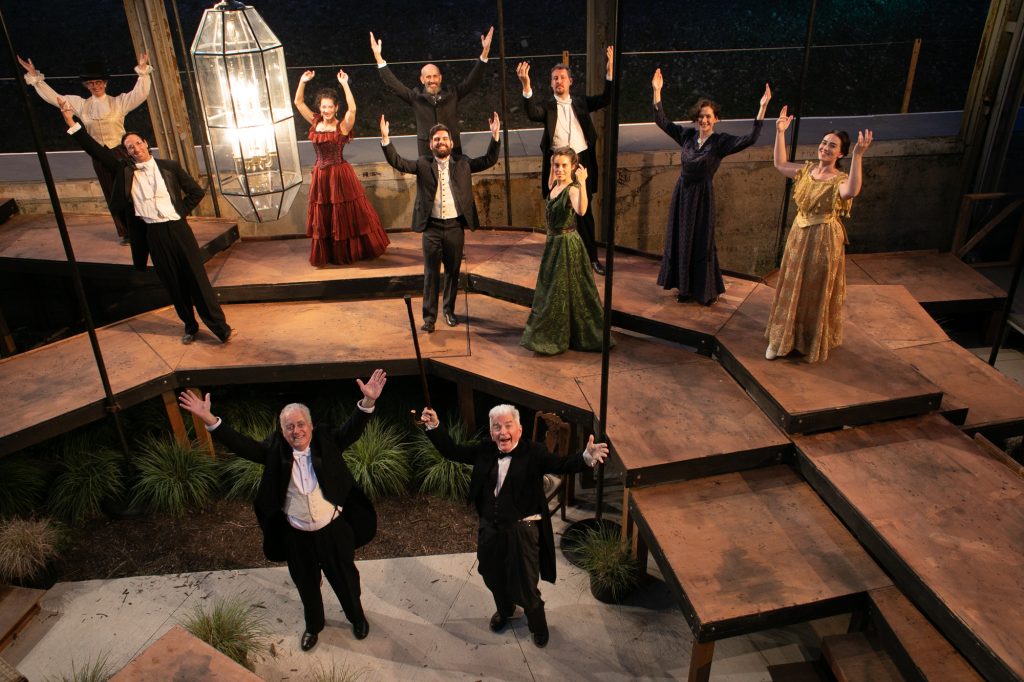
This emphasis on sound is all the more ironic in a play in which none of the characters want to listen to each other. It’s not just the aged, laconic servant Firs (delightfully played by Gregory Lehane), who is literally deaf, but all of the characters who are not, acting as if they are. This type of purposeful non-listening is like a form of emotional blindness which makes the action of the play so ineffable and ultimately mysterious. Director Brook allows the cast to revel in this, almost to the point of farce, but never lets it cross that line.
However, one of the trickiest aspects of “The Cherry Orchard” since its premiere in 1904 — under legendary Russian director Konstantin Stanislavski — has been to navigate its imperceptible line between comedy and tragedy. Stanislavski chose tragedy – and an overt acting style — which put him immediately at odds with Chekhov, who saw his creation as more of a subtle comedy. Director Brook appears to side with the Russian director, as she has instilled a pronounced, histrionic sense in her cast, especially the upstart servant, Dunyasha, vibrantly played by Zanny Laird. Laird’s Dunyasha is like that friend who’s always ready to dance, even before you get past the bouncer at the club.
One could argue for either emphasis, but the best way to portray Chekhov is probably not to commit to one side of the acting spectrum or the other, nor veer too strongly towards comedy or tragedy. This is an artist who lives in the middle of things, which is often what life is, neither entirely one way, or the other.
Peter Duschenes, as the feckless uncle, Gayev, encapsulates this dilemma adroitly. One could view his portrayal as comic, like a sitcom character who never is given respect and told to shut up all the time (“You must be quiet, Uncle”); or as tragic, and hence pitiful, for he will never amount to anything, and can’t help his sister Lyubov (Karla Boos) save the family’s beloved, ancestral cherry orchard. The eminent critic Peter Gay has characterized this play as a “sad comedy,” and that’s an apt description of this production, and probably the best compliment one can give to any rendition of “The Cherry Orchard.”
Boos (who is also Quantum’s founder), in the role of the family matriarch, does tend to mine more of the tragic element in her character – she ends the play sobbing vividly which is somewhat less restrained than the insouciance suggested by the original text, but more in line with this “new version” as written by Libby Appel. Appel’s adaptation is clean, moves swiftly, and carries an arc appropriate to our “two-act” age, in contrast to the “four-act” Chekhovian era.
It’s worth noting that Chekhov did not favor hero roles in his mature dramatic works, thus a cast has to be universally strong to bring off such a play, and this cast certainly is. Joseph McGranaghan injects freshness into the long-winded speeches of the naïve student Trofimov, who is “above love” but below any kind of real life wisdom. Benjamin Viertel is entirely convincing as the insidious Yasha, one of the few utterly detestable characters in Chekhov’s universe.
In one of the most difficult roles, Nick Lehane infuses the nouveau-rich Lopakhin – who wants to buy, then chop down the orchard — with sensitivity. If you’re playing this role right you have to make the audience want to hate you, but not let them hate you, and he manages to pull this off well.
Also accomplished are John Shepard as Pischik, Jack Emmerling as Yepikhodov, Julia de Avilez Rocha as Anya, Moira Quigley as Varya, and Laurie Klatscher as Charlotta.
The turn-of-the-century costumes by Damian E. Dominguez are superb as they let the characters move and dance as if they have been wearing their outfits for years. Often in period pieces the clothing can function like strait jackets and actually inhibit believability, but here when we watch the cast dance in the ballroom scene they look like they’re actually having fun breaking their moves.
As lighting designer, C.Todd Brown once again does his job so well you might not notice it – he lights the set like environmental artist Robert Irwin, with ferocious subtlety. Being outside and contending with uncertain lighting conditions over the course of many nights – we had an overcast sky and light rain during the premiere – is tough enough, but then you also have to realize that the stage faces two, opposing directions, so keeping the actors well-lit from both sides is no easy task.
One of the more innovative aspects of this show is what the characters do when they’re not onstage. Instead of hanging out backstage, they’re usually wandering the fields or paths in the distance, like real people might on a rural estate. They can be seen walking, talking, playing guitars, or laying down, as if they’re really exploring the world their performance is asking us to believe in. This engenders a truly immersive experience for the audience, as not only do the spectators surround the characters, but the characters literally surround the spectators. One must ask, who is watching whom?
It is striking that as theaters return after the shutdowns induced by the pandemic, many, such as Quantum, are staging works of profound insight and tremendous impact. Yet still, as reported in a story this week on WESA, national theater attendance is down an average of 20 percent, and in some communities, such as Pittsburgh, by even more.
I’m not sure that any entertainment venue could do more than this one has, offering a fresh air setting, strict Covid protocols, and spacious seating. Notwithstanding that it’s exponentially more difficult to mount a production outside. So if you love strong, iconoclastic theater, experience this show, and let yourself be transported back to another fascinating country in another fascinating time. Because there is nothing more mundane or banal than sitting in your living room, watching the relentless phantasmagoria of advertising-driven, mass entertainment. We all could benefit from more meaningful – and less frivolous – drama in our lives.
THE CHERRY ORCHARD continues through July 31st at OneValley, 4165 Blair Street, Pittsburgh, 15207, $38-58. 412-362-1713 or www.quantumtheatre.com


